Just a short drive from the bustling city of Chiang Mai lies the opportunity to immerse yourself in the rich and authentic culture of the Palaung tribe. As one of the many unique hill tribes in the region, the Palaung people offer visitors a glimpse into their traditional way of life, complete with vibrant clothing, intricate crafts, and fascinating customs.
Exploring the Palaung Tribe in Chiang Mai
While visiting Chiang Mai, Thailand, one cannot miss the opportunity to immerse themselves in the authentic culture of the Palaung tribe. With a rich history and unique traditions, the Palaung people offer a glimpse into a way of life that has remained largely unchanged for generations.
Historical Context
You will find that the Palaung tribe has a deep-rooted history that dates back centuries. They are believed to have originated in Myanmar before migrating to northern Thailand, where they have established their community. The Palaung people have preserved their cultural heritage through their language, rituals, and traditional practices, making them a significant part of Thailand’s cultural tapestry.
Geographical Setting
For the Palaung tribe, the geographical setting plays a crucial role in shaping their way of life. Nestled in the lush green mountains of Chiang Rai, the Palaung villages offer breathtaking views and a serene environment. The fertile land allows them to practice agriculture, growing crops such as tea, coffee, and vegetables.
Their close connection to nature is evident in their customs and beliefs, with many rituals and festivals honoring the land and its resources. The landscape not only provides sustenance but also serves as a spiritual backdrop for the Palaung people, influencing their traditions and daily practices.
Types of Palaung Cultural Expressions
There’s a rich tapestry of cultural expressions unique to the Palaung tribe in Chiang Mai, which reflect their heritage, traditions, and way of life. These cultural expressions encompass various aspects of Palaung identity, including traditional clothing, folk music and dance, culinary traditions, and festivals and ceremonies. Each of these facets plays a significant role in preserving the authentic culture of the Palaung tribe for future generations to appreciate and cherish.
Traditional Clothing
Assuming a crucial role in Palaung cultural identity, traditional clothing is a symbolic representation of the tribe’s history and customs. The attire worn by Palaung men and women is not only striking in its intricate designs and vibrant colors but also serves as a reflection of their social status and roles within the community. Women often wear handwoven sarongs known as “longyi,” adorned with intricate patterns that signify their marital status and lineage.
Folk Music and Dance
With a deep-rooted connection to nature and spirituality, Palaung folk music and dance hold a special place in the tribe’s cultural expressions. These art forms are often performed during significant ceremonies and celebrations, accompanied by traditional instruments such as drums, gongs, and flutes. The rhythmic movements and melodious tunes of Palaung dances convey stories of the tribe’s history, beliefs, and daily life, creating a captivating experience for both performers and spectators.
Traditional culinary traditions play a central role in Palaung culture, with recipes and cooking methods passed down through generations. Staples include rice dishes, vegetables, and herbs sourced from the surrounding mountains and forests, reflecting the tribe’s reliance on the land for sustenance. Each meal is a communal affair, with families and communities coming together to share food, stories, and laughter.
Clearly, Palaung culinary traditions are deeply intertwined with the tribe’s cultural identity, showcasing a harmonious relationship with nature and a profound respect for the resources that sustain their way of life. The use of local ingredients and traditional cooking techniques not only adds to the unique flavors of Palaung cuisine but also highlights the tribe’s commitment to preserving their heritage through the art of cooking.
Festivals and Ceremonies
To commemorate important milestones and honor ancestral spirits, the Palaung tribe celebrates a variety of festivals and ceremonies throughout the year. These events are marked by vibrant rituals, traditional performances, and offerings to appease the spirits and seek blessings for the community. From the annual New Year festivities to agricultural rituals marking the changing seasons, each festival serves as a reminder of the tribe’s connection to their ancestors and the natural world.
The Palaung tribe’s rich cultural expressions are a testament to their resilience, creativity, and deep-rooted traditions that have withstood the test of time. Through their traditional clothing, folk music and dance, culinary traditions, and festivals and ceremonies, the Palaung people continue to embrace and showcase their authentic culture, keeping their heritage alive for generations to come.
A Step-by-Step Guide to the Palaung Village Experience
Now, let’s examine a step-by-step guide to fully embrace the authentic culture of the Palaung tribe in Chiang Mai. From pre-visit preparations to immersing yourself in cultural activities, here’s how you can make the most of your experience.
Pre-visit Preparations
With any cultural immersion experience, it’s necessary to prepare adequately to ensure a respectful and meaningful visit. Research about the Palaung tribe, their customs, traditions, and language before your trip. Pack appropriate clothing that adheres to their cultural norms, such as modest attire that covers shoulders and knees. It’s also a good idea to bring small gifts or offerings for the community as a sign of respect and gratitude.
Respecting Cultural Norms Upon Arrival
One of the most crucial aspects of visiting a Palaung village is to respect their cultural norms from the moment you arrive. Greet villagers with a friendly smile and ask for permission before taking any photographs. Remove your shoes before entering any homes or sacred spaces, and be mindful of your actions to show respect for their way of life. Remember that you are a guest in their community, so it’s necessary to be courteous and receptive to their customs.
One key norm to be mindful of is the concept of hierarchy within the village. Elders hold significant respect and authority, so it’s important to greet them first and seek their guidance or permission before engaging in any activities. This gesture shows reverence for their wisdom and leadership within the community.
Participating in Cultural Activities
Village activities offer a unique opportunity to immerse yourself in the rich cultural traditions of the Palaung tribe. From participating in traditional dances and rituals to learning about their agricultural practices, there are plenty of ways to engage with the community. Be open-minded and willing to learn from the villagers, as they are eager to share their heritage with visitors.
Village elders often lead cultural activities, offering insights into their beliefs and practices. Take the time to listen attentively and ask questions respectfully to deepen your understanding of their way of life. By actively participating in these activities, you not only show your interest in their culture but also build meaningful connections with the villagers.
Tips for Engaging with the Palaung Tribe Authentically
To truly engage with the Palaung tribe authentically, it is imperative to approach the experience with respect and an open mind. Here are some tips to help you engage with the Palaung tribe in a meaningful way:
Communication and Language Etiquette
Language plays a crucial role in engaging with the Palaung tribe. While English might be spoken to some extent, it’s important to learn a few words and phrases in the local dialect. This effort shows your genuine interest in their culture and will be highly appreciated by the Palaung people.
Supporting Local Artisans
Little gestures can go a long way in supporting local artisans within the Palaung tribe. Consider purchasing handmade crafts directly from the artisans themselves rather than buying mass-produced souvenirs. By doing so, you are not only supporting the local economy but also preserving traditional craftsmanship within the community.
Palaung artisans often produce intricate textiles, silverware, and pottery that showcase their rich cultural heritage. By investing in their craftsmanship, you are contributing to the continuation of these traditional art forms for future generations to enjoy.
Documenting Your Experience Respectfully
Local customs and traditions are an integral part of the Palaung tribe’s identity. When documenting your experience within the community, always ask for permission before taking photographs or videos. Respect the privacy of the individuals you encounter and avoid capturing sensitive moments without consent.
Understanding the importance of respecting the Palaung tribe’s traditions when documenting your experience is key to fostering a positive relationship with the community. By approaching the process with sensitivity and mindfulness, you can create lasting memories while upholding the dignity of the Palaung people.

Factors to Consider When Visiting Indigenous Communities
Many travelers are drawn to the unique cultures and traditions of indigenous communities, like the Palaung tribe in Chiang Mai. While visiting these communities can be a rewarding experience, it is imperative to approach these encounters with respect and consideration for the impact it may have on the local environment, socio-economic dynamics, and ethical practices.
Impact on Local Environment
- Little changes in the behavior of visitors can have significant impacts on the fragile ecosystems and biodiversity of indigenous communities.
This underscores the importance of being mindful of your carbon footprint, waste management, and respecting the natural resources of the community.
Socio-Economic Considerations
If you are considering visiting an indigenous community, it is crucial to understand the socio-economic dynamics at play. Tourism can bring both positive and negative consequences to these communities, including changes in local economies, traditional practices, and social structures. It is imperative to support initiatives that empower local communities and ensure that the economic benefits of tourism are distributed equitably among community members.
It is vital to remember that the socio-economic well-being of indigenous communities is intricately linked to their cultural heritage and natural resources. Therefore, responsible tourism practices should aim to preserve these aspects while promoting sustainable development.
Ethical Tourism Practices
Assuming the role of a responsible traveler means being aware of the ethical implications of your visit to indigenous communities. This involves respecting the privacy and traditions of the community, seeking consent before taking photographs, and refraining from exploiting cultural practices for entertainment.
Local guides and community leaders can provide valuable insights into the cultural protocols and expectations of the community. By engaging in open dialogue and active listening, travelers can ensure that their interactions with indigenous communities are based on mutual respect and understanding.
Pros and Cons of Cultural Tourism in Palaung Communities
Advantages for the Palaung Community
You can see cultural tourism as a two-sided coin when it comes to the impact on the Palaung community. On one hand, it provides economic opportunities for the locals through the sale of handicrafts, homestays, and guided tours. This can contribute to poverty alleviation and the overall well-being of the community. Additionally, cultural tourism can help in the preservation and promotion of the Palaung culture and traditions by showcasing them to a global audience, fostering pride and a sense of identity among the community members.
Challenges Faced by the Palaung People
Faced with the influx of tourists, the Palaung people might face challenges such as disruption of their traditional way of life, exploitation by middlemen in the tourism industry, and the dilution of their cultural practices for commercialization. There can also be environmental impacts from increased foot traffic in the area, leading to issues like waste disposal and natural resource depletion.
Advantages of cultural tourism can be significant for the Palaung community, but it is necessary to address the challenges they face in order to ensure a sustainable and respectful tourism model.
The Role of Tourists in Cultural Conservation
There’s a crucial role that tourists play in the conservation of the Palaung culture. By showing respect for local customs and traditions, supporting community-based tourism initiatives, and engaging in cultural exchanges with the locals, tourists can actively contribute to the preservation of the Palaung heritage. They can also help raise awareness about the importance of respecting indigenous cultures and promoting responsible tourism practices among a wider audience.
Palaung communities can benefit greatly from cultural tourism if approached thoughtfully and sustainably, with a focus on mutual respect, empowerment, and the preservation of their unique cultural identity for generations to come.
Conclusion
Ultimately, embracing the authentic culture of the Palaung Tribe in Chiang Mai offers a unique and enriching experience for travelers seeking a deeper connection with local traditions. From participating in traditional ceremonies to learning about the tribe’s rich history and beliefs, visitors can gain a greater appreciation for the cultural diversity that Thailand has to offer.
By engaging with the Palaung Tribe in a respectful and responsible manner, tourists can contribute to the preservation of their heritage while also fostering mutual understanding and respect between different cultures. Embracing the authentic culture of the Palaung Tribe not only benefits travelers looking for an immersive cultural experience but also plays a role in supporting the sustainable development of indigenous communities in Chiang Mai and beyond.







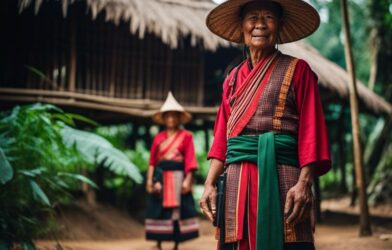
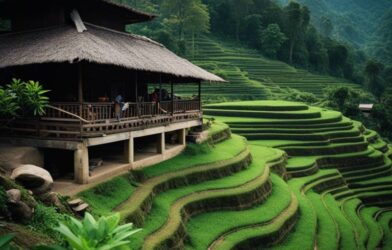
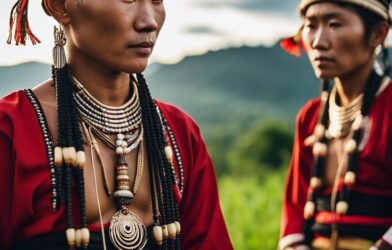
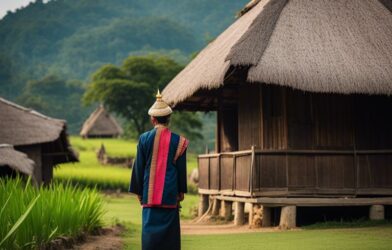
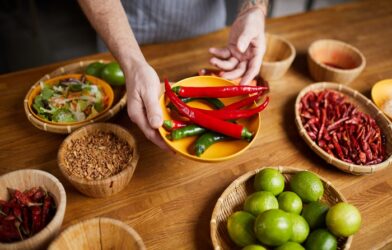
Comments are closed